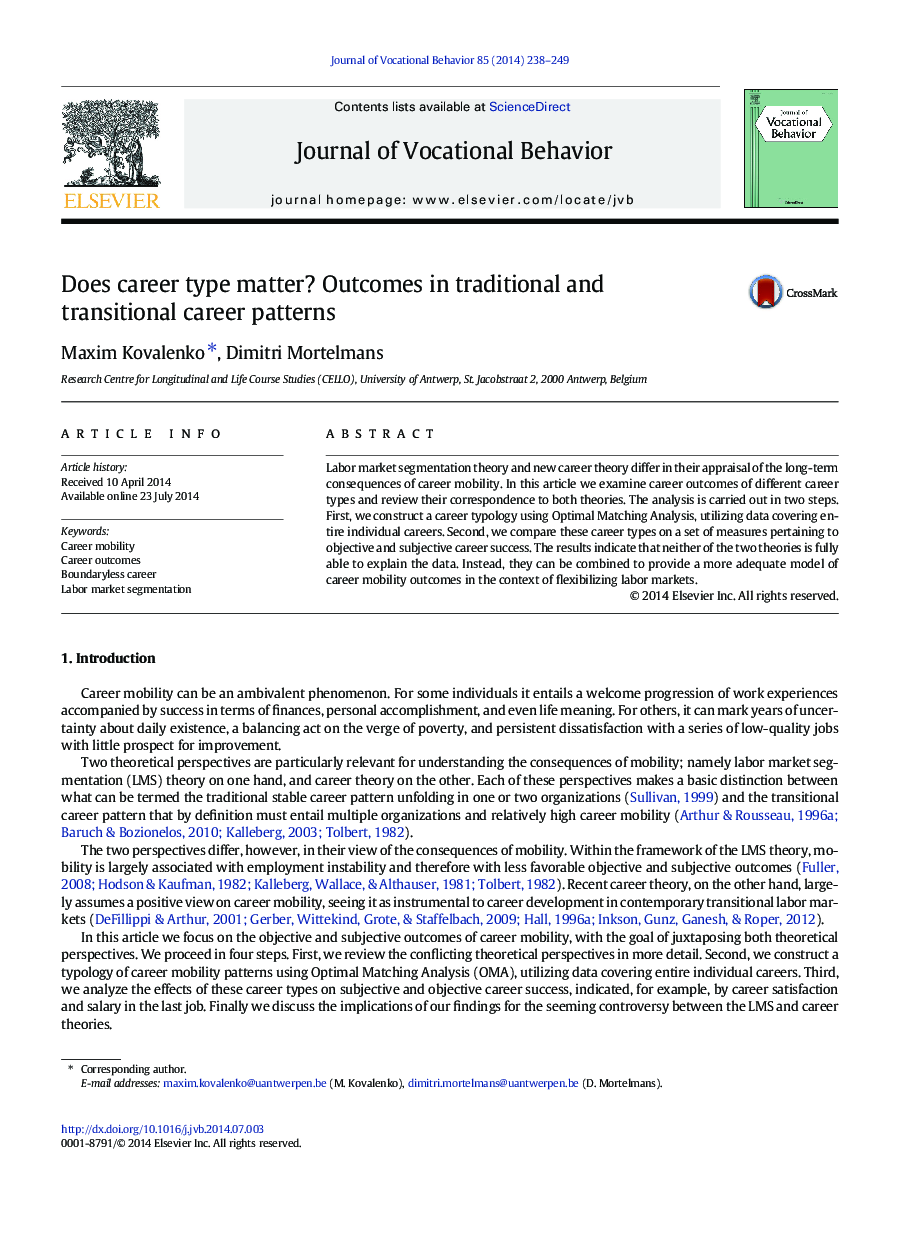| Article ID | Journal | Published Year | Pages | File Type |
|---|---|---|---|---|
| 886821 | Journal of Vocational Behavior | 2014 | 12 Pages |
Abstract
Labor market segmentation theory and new career theory differ in their appraisal of the long-term consequences of career mobility. In this article we examine career outcomes of different career types and review their correspondence to both theories. The analysis is carried out in two steps. First, we construct a career typology using Optimal Matching Analysis, utilizing data covering entire individual careers. Second, we compare these career types on a set of measures pertaining to objective and subjective career success. The results indicate that neither of the two theories is fully able to explain the data. Instead, they can be combined to provide a more adequate model of career mobility outcomes in the context of flexibilizing labor markets.
Related Topics
Social Sciences and Humanities
Business, Management and Accounting
Marketing
Authors
Maxim Kovalenko, Dimitri Mortelmans,
